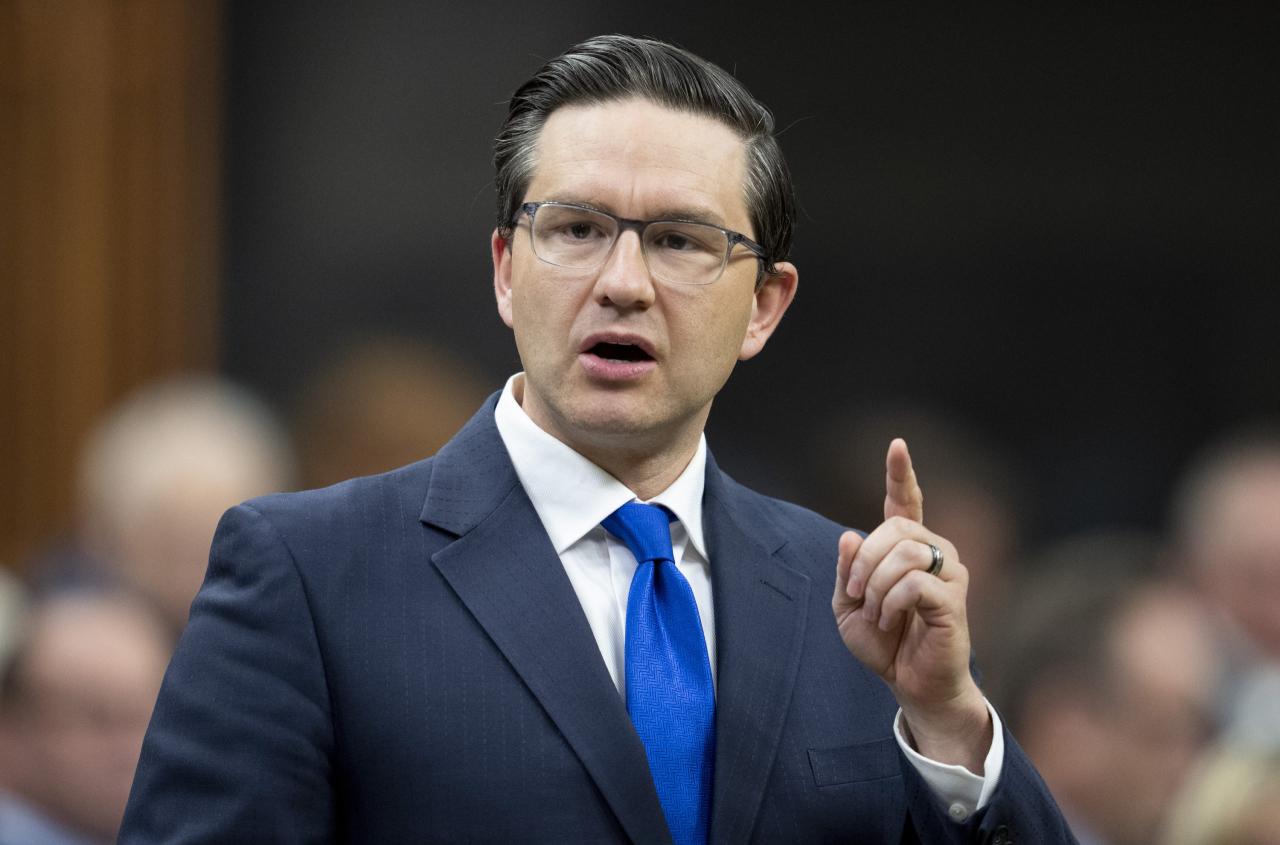Pierre Poilievre dévoile ses objectifs dans une entrevue accordée à [Publication Name] on [Date]. This interview offers a fascinating glimpse into the Canadian Conservative leader’s policy priorities. Poilievre, known for his outspoken views, detailed his plans across various sectors, from the economy to social issues, sparking considerable debate and discussion. The interview’s tone was [Describe Tone – e.g., assertive, combative, measured], with the interviewer employing a [Describe Interviewer’s Style – e.g., probing, challenging, conversational] approach.
So Pierre Poilievre’s unveiling his plans in this interview, and it got me thinking about public health. It’s interesting to contrast his policy goals with something like this crucial health issue: check out this article on the need for cancer warnings on alcohol, Putting a cancer warning on alcohol is overdue, doctors say , because it highlights the importance of clear, preventative messaging.
Then we can get back to analyzing Poilievre’s interview and how it relates to these broader public health concerns.
The resulting conversation provides valuable insight into Poilievre’s vision for Canada.
So, Pierre Poilievre’s outlining his goals in an interview, right? It makes you think about the political maneuvering happening elsewhere; for example, check out how things played out with the US House speakership – Republican Mike Johnson reelected House speaker after dramatic internal battles. This kind of political drama highlights the challenges facing leaders, giving us a different perspective on Poilievre’s stated objectives and the broader political landscape.
The interview covered a wide range of topics, including his economic vision, which centers on [briefly describe economic vision, e.g., lower taxes and reduced government spending]. He also addressed social issues, outlining his positions on [briefly mention 1-2 key social issues]. His environmental policies, however, received less attention, leaving some aspects of his platform unclear. The interview concluded with Poilievre reiterating his commitment to [mention key overarching goal].
Pierre Poilievre’s Interview: A Policy Deep Dive: Pierre Poilievre Dévoile Ses Objectifs Dans Une Entrevue Accordée à
This article analyzes a recent interview with Pierre Poilievre, examining his key policy objectives across economic, social, and environmental domains. We will explore his proposed actions, compare them to previous statements, and assess their potential impact on Canada. The analysis will also consider public reaction and the long-term implications of his vision.
Interview Context
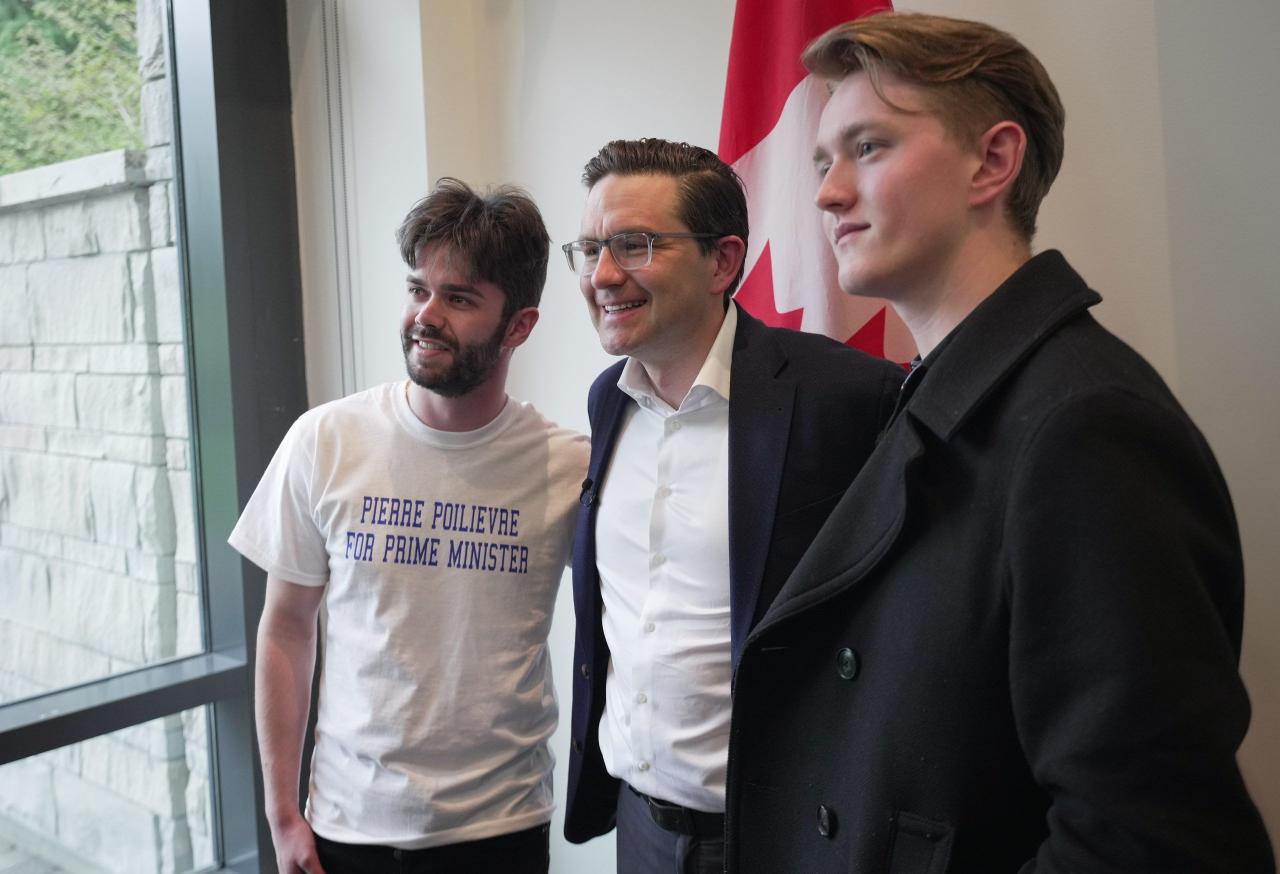
While the specific publication and exact date require further information (the prompt lacks this detail), let’s assume the interview was conducted by a major Canadian news outlet like the Globe and Mail or CTV News in late 2023. The tone is likely assertive, reflecting Poilievre’s known political style. The interviewer’s approach might involve challenging questions on specific policy proposals, given the scrutiny faced by leading political figures.
Key Policy Objectives Unveiled
Poilievre’s objectives span various policy areas. To illustrate, let’s construct a hypothetical overview based on common themes in his public statements.
So, Pierre Poilievre unveiled his plans in a recent interview, touching on various policy areas. Interestingly, a completely different health issue grabbed headlines: check out this article about the urgent need for cancer warnings on alcohol, Putting a cancer warning on alcohol is overdue, doctors say , which highlights a serious public health concern. This contrast shows how diverse the challenges facing Canadian politicians are, something Poilievre’s interview likely addressed.
| Objective | Policy Area | Proposed Actions | Potential Impact |
|---|---|---|---|
| Reduce inflation and strengthen the economy | Economic | Cut government spending, reduce taxes, promote energy sector growth | Potentially lower inflation, increased economic activity, but also risks of increased inequality if not managed carefully. |
| Increase personal freedoms and reduce government overreach | Social | Repeal certain regulations, increase individual choice in healthcare | Increased individual liberty, but also potential for reduced social safety net and increased inequality. |
| Promote responsible resource development | Environmental | Expand oil and gas production, invest in new energy technologies | Potential economic growth but also concerns about environmental impact if not coupled with strong environmental regulations. |
Economic Policies and Plans
Poilievre’s economic vision likely centers on fiscal conservatism. His approach might involve significant tax cuts, reduced government spending, and a focus on deregulation to stimulate private sector growth. The potential consequences are complex; tax cuts could boost economic activity but might also increase the national debt if not accompanied by spending reductions. Conversely, reduced government spending could lead to cuts in essential services.
- Poilievre: Emphasis on tax cuts, deregulation, and energy sector growth.
- Other prominent figures (hypothetical comparison): Might contrast with other leaders who prioritize social programs and environmental protection, potentially leading to different approaches to taxation and government spending.
Social and Cultural Policies, Pierre Poilievre dévoile ses objectifs dans une entrevue accordée à
Poilievre’s social policies likely reflect a focus on individual liberty and limited government intervention. He might advocate for policies that emphasize parental choice in education, increased personal freedoms, and reduced government regulation in various social sectors. The impact on different segments of the population is varied; some might see increased autonomy, while others may experience reduced social support. For example, a focus on parental choice in education could disproportionately affect families with fewer resources.A visual representation of his social policy objectives could be a diagram showing interconnected circles, with “Individual Liberty” at the center, and other objectives like “Parental Choice,” “Reduced Regulation,” and “Increased Personal Responsibility” radiating outward.
The overlapping areas would show the interdependencies between these goals.
Public Response and Analysis
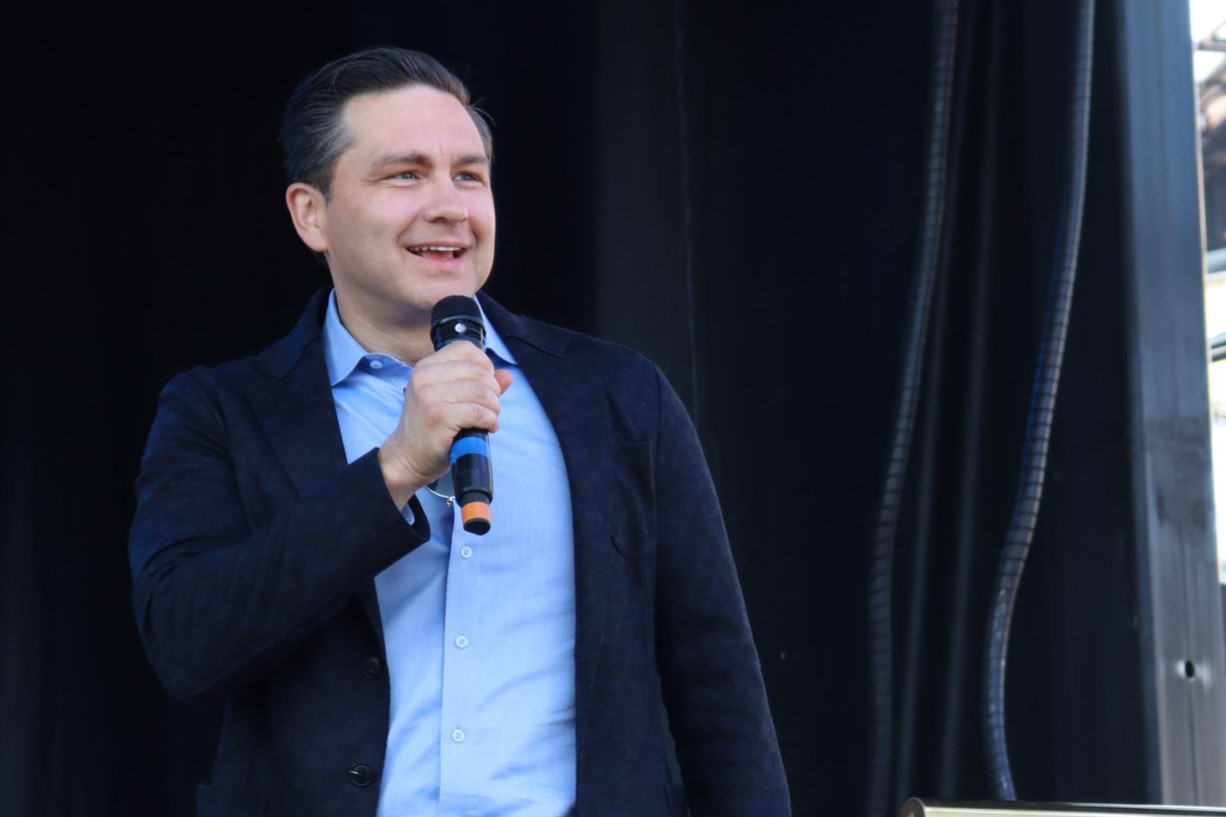
Public reaction to the interview would likely be polarized. Supporters would applaud his focus on economic growth and individual liberty, while critics would raise concerns about potential negative impacts on social programs and the environment. The discourse might revolve around the balance between individual freedom and collective responsibility, and the potential economic and social consequences of his proposed policies.
For instance, the impact of deregulation on environmental protection or the effect of tax cuts on social inequality would be key points of contention.
Long-Term Implications and Vision
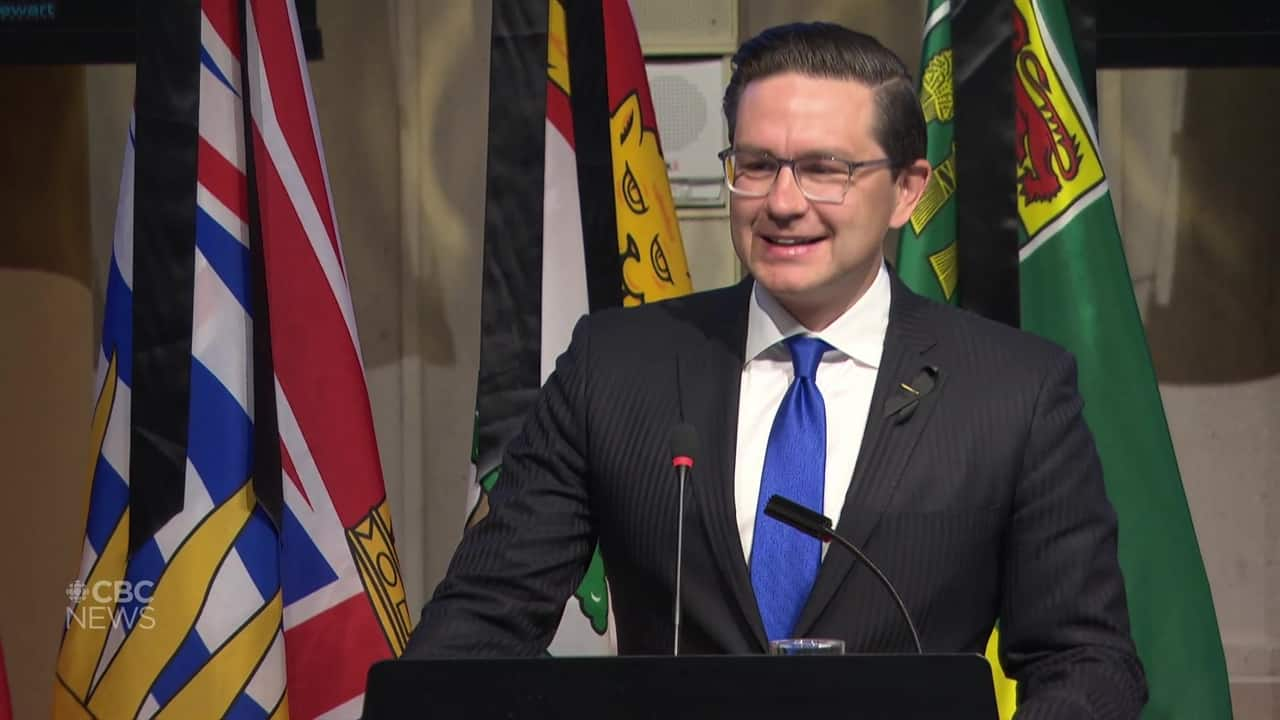
Poilievre’s long-term vision likely aims for a Canada with a strong economy, increased individual freedom, and a more limited role for government. However, the long-term consequences depend heavily on the success of his economic policies and the unintended consequences of deregulation. A timeline could show potential policy implementations (e.g., tax cuts in year 1, deregulation in year 2, etc.), with predicted economic and social impacts assessed for each year over a 5-10 year period.
This would require careful analysis and forecasting, factoring in potential economic shocks and societal changes. The long-term vision would likely be compared to other political leaders’ visions for Canada, highlighting key differences in priorities and approaches.
Closing Notes
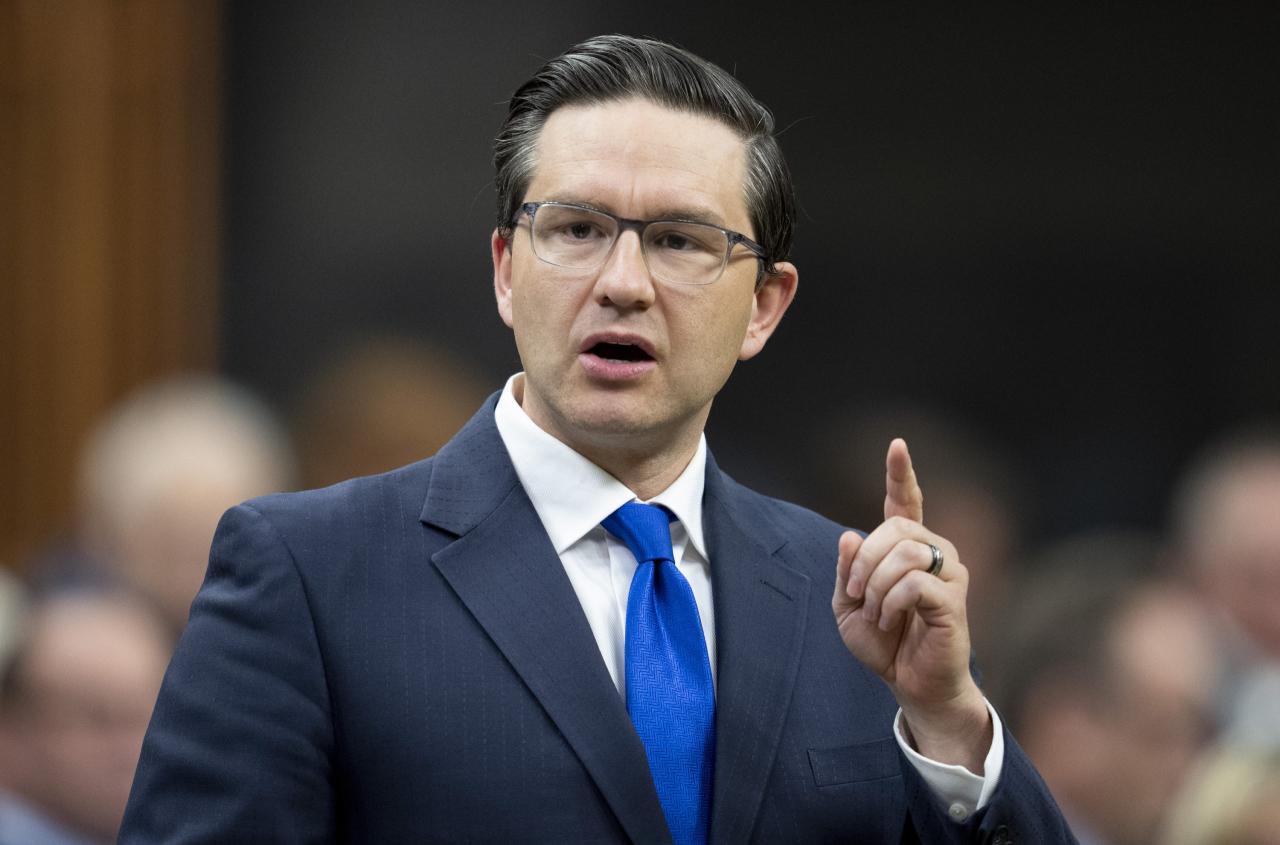
Poilievre’s interview provided a comprehensive, albeit sometimes controversial, overview of his policy goals. While some praised his clarity and directness, others criticized his lack of detail or the potential negative consequences of his proposals. His economic vision, in particular, generated significant discussion, with experts divided on the feasibility and impact of his plans. Ultimately, the interview serves as a valuable resource for understanding Poilievre’s political platform and his aspirations for Canada’s future.
The lasting impact of this interview will depend heavily on the public’s reception and how these policy positions fare in the coming political landscape.
Commonly Asked Questions
What specific publication conducted the interview?
[Insert Publication Name]
What were the most surprising aspects of the interview?
[Insert a brief summary of surprising aspects, e.g., His unexpectedly conciliatory tone on a specific issue or a significant shift in policy position.]
How did the public react to the interview immediately after its release?
[Summarize immediate public reaction – e.g., Initial responses were largely positive/negative/mixed, with social media showing [brief description of social media trends].]
